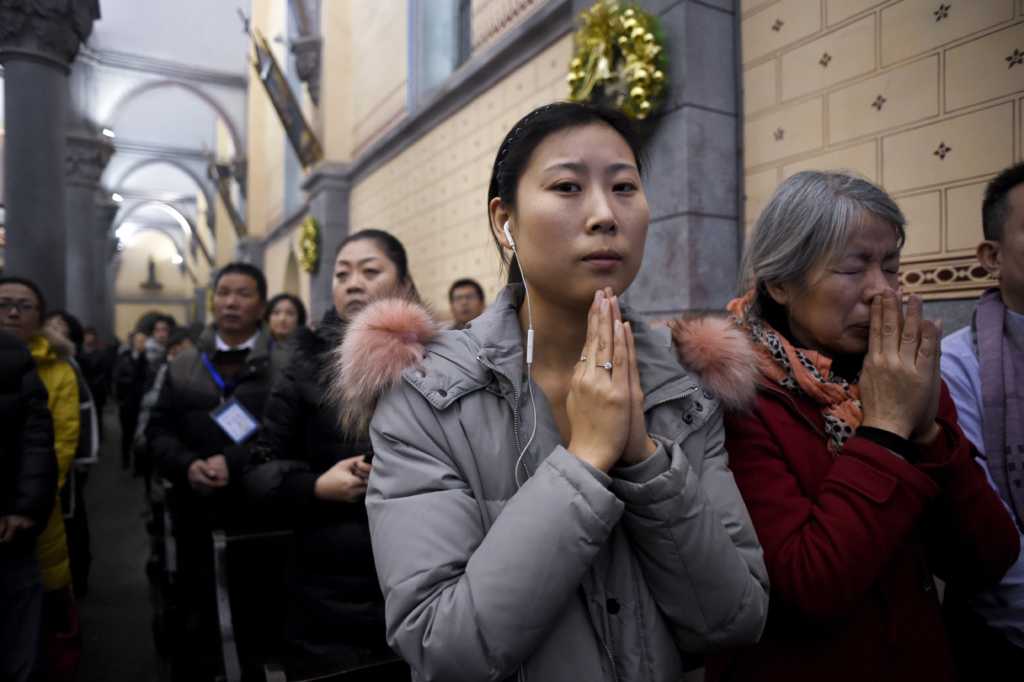It’s no secret the Chinese government isn’t all that fond of Christianity. They’ve taken aggressive steps to “contain” growth, including rezoning and demolishing churches. One woman, the wife of a pastor, defiantly stood in front of a bulldozer that was about to demolish their church.
It plowed over her and they buried her alive.
The risks are huge, but faithful believers are not backing down – but they are being more discreet. Last year new reports surfaced that approximately a 100 million people throughout China have started to worship in “underground churches” over traditional ones.
A well known and open secret among Chinese Christians.
But organizations like China Aid a persecution watchdog in the eastern country, explain that in 2015, that was a risky idea. Noting that there was “more than a 150 percent” increase in the number of “abuses” against Christian followers in over a decade that year.
WATCH: Teenager Braves Hailstorm to Help Elderly Man Cross the Street
A recent editorial piece written by Colin Clark, an international pastor based in China unpacked some of the complexities and long unanswered questions people have about practicing Christianity in China in 2017.
Clark opened with a disclaimer explaining that his perception is arguably “not definitive and one-sided” because he is writing it based on his personal experience. Also pointing to the fact that the legal rights and government regulations in China are very fluid and sometimes “China is one thing” and “at other places and times it’s the opposite.” But according to his post on Christianity in China today for The Gospel Coalition, the culture in 2017 is much different than what it was perceived or what was going on even last year.
“The official stance of the Communist Party is atheistic, but that’s not forced on all Chinese citizens or expatriates. Protestant Christianity is one of five approved religions alongside Buddhism, Taoism, Islam, and modified Catholicism (I say “modified” since the Chinese Catholic Church is forced to operate independent of Rome).”
So are the wildly reported stories claiming that the brutality against Christians are real? Clark explains that, under the current government combined with the Three-Self Patriotic Movement (TSPM), “the Protestant church leader in the country actually has the final word and reserves the right to censor and control their churches to the extent they deem necessary and appropriate.”
Many citizens attend underground churches that meet in off-hour bars, storefronts, rented homes and apartments so they can speak freely. But in doing this, these churches are acting illegally which is why they are called “underground”.
Under current Chinese law, all religious institutions must register. If they do not, the Chinese government has the right to persecute them once they are located.
Consequently, many Christians have decided to meet outside the TSPM structure so they share the gospel the way they choose. But the government does not want that, so they have extended invitations for the churches to register. But still very few have come forward.
The term “underground” is all relative. In China, even if a church leader decides not to register, the government still knows about it.
So why don’t they just do it? Well if they do, they will have to learn how to deal with many policies that they currently don’t have to follow like having services at church buildings so they can be monitored and be willing to submit sermons to government officials to be reviewed and approved before their weekly service, Clark said.
(H/T: The Gospel Coalition)
—
Other Must-Read Stories:
–7-Year-Old’s School Presentation on Deployed Military Dad is Just PERFECT
–This NYC Pastor Has Helped Save 200 Captives in Northern Iraq
– Rapper Kendrick Lamar: ‘We’re in a Time Where We Exclude One Major Component Out of Life: God’



